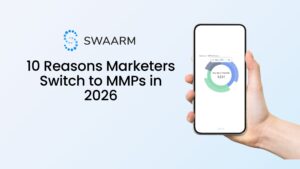Introduction
🌟 Excited to announce a special interview session with Omar Radoncic, a seasoned expert in the affiliate marketing and adtech space! 🌟
As the driving force behind Optinian, a leading player in optimizing ad spend and performance, Omar has a wealth of knowledge to share. His experience spans across the ever-evolving landscape of affiliate marketing, where he’s mastered the art of turning challenges into opportunities.
Join us as we delve into the strategies, tips, and tricks that have helped Omar and his team excel in this competitive industry. Whether you’re new to the field or a seasoned pro, this interview promises to deliver valuable insights you won’t want to miss!
Question 1: What inspired you to pursue a career in the affiliate marketing and adtech industry?
My dive into the adTech and affiliate marketing industry was anything but planned. Back in 2014, I was sitting in my dusty office, buried in legal documents, working as a translator at a university – translating jargon that hardly sparked joy to anyone reading it. Then, almost by accident, I stumbled upon digital marketing, but unfortunately through an MLM scheme (yikes) and in the weirdest form. While that venture was short-lived (thank God), for me it cracked open a door to the world of making money online, a concept barely known in my country.
Curious to see more, I clicked on the first result after searching “work online for money”.
Boom, landed on Upwork.
My first gig? Copywriting.
It felt like I had rediscovered the power of words! I soon realized that adding SEO made copywriting even more exciting and lucrative. That’s when I expanded my focus from purely creative writing to strategic writing, all with the goal of climbing the search engine ranks for my clients. At the time, I was quite happy with my career trajectory.
All these side jobs and an updated portfolio eventually led to a job offer from a company in the affiliate marketing space. My career there progressed from Media Buyer to accepting the role of Head of Business Development at a 9-figure adTech company. What fascinated me throughout this whole adTech journey wasn’t just the shift from traditional to digital marketing, but the fact that every click and conversion could be tracked and tied to real revenue. It was marketing, but not as I had known it before – this was marketing I could measure and optimize.
Now at Optinian, I am at the forefront of pushing our efforts further in the space of leadgen.
Question 2: How has the role of technology evolved in affiliate marketing over the past few years?
Indulge me for a second and think of the world of affiliate marketing a few years ago: relying on rudimentary tools like spreadsheets and basic tracking systems to show you what you need. As for campaign management? It was a much more tedious process, where you had to manually piece together data just to figure out your next steps.
But today, it’s completely different. Platforms like Swaarm have revolutionized the toolkit at our disposal. Today, we can automate nearly every aspect of the affiliate marketing process. They sift through vast amounts of data, pinpointing top-performing affiliates with the uber-accuracy. They optimize creatives and adjust bids in real-time, helping you adjust strategies instantaneously to capitalize on emerging opportunities.
However, the real breakthrough has been the integration of AI-driven systems. These aren’t just enhancements; they’re pivotal shifts in how we approach marketing. I believe that with the automation of decision-making processes and refining targeting strategies, these systems have dramatically increased our operational efficiency and campaign effectiveness.
This is probably the essence of modern affiliate marketing technology: it transcends mere automation – it is transformative.
Question 3: What are the key challenges you’ve faced in the industry, and how have you overcome them?
Our industry moves at an insane pace. New technologies, platforms, and regulations spring up regularly, demanding not only awareness but also agility, adaptability, and foresight.
Every company/individual should foster a culture of continuous learning to remain relevant in the field. This is crucial, especially when confronting persistent threats like fraud, an all-too-common challenge in our space. Everyone in the industry knows how fraud can skew campaign data and erode both budgets and client trust. But beyond recognizing this issue, it’s vital to take decisive action.
And for those grappling with this problem, my advice is simple: either adopt OR develop a robust anti-fraud system. As far as I know, Swaarm has a pretty rich anti-fraud toolkit that lets its users detect and block suspicious activities in real time. And this isn’t just a defensive measure – it’s a proactive strategy that turns a widespread issue into a showcase of your commitment to integrity and quality, solidifying your reputation as a reliable partner to anyone out there.
As a matter of fact, that’s exactly how we used one of their solutions to catch a fraudster in the act. Specifically, we identified a tactic known in the industry as click spamming, where the fraudster generated an unusually high volume of low-quality clicks in an attempt to steal attribution for conversions they hadn’t influenced. Swaarm’s anti-fraud tools flagged the suspicious activity in real time, allowing us to quickly block the source and prevent further damage. By catching this early, we not only protected our advertisers but also demonstrated our dedication to maintaining a clean and trustworthy network.
Question 4: What tips would you give to someone looking to start in the affiliate marketing industry?
Affiliate marketing can be challenging, but in my experience, it’s accessible to everyone and rewarding when approached the right way. Personally, I’m glad I made the switch from translator to affiliate marketing manager. Before diving in, though, it’s important to set long-term goals and focus on two key things: building a solid foundation in digital marketing – understanding paid advertising and data analytics – and being approachable, as networking is 80% of the game.
Please don’t forget, the affiliate space is dynamic, so be ready to adapt and experiment. What works today may not work tomorrow, so innovation is key. Lastly, patience is essential. A successful career in affiliate marketing takes time, consistency, and resilience.
Keep pushing forward and stay focused on your goals.
Question 5: How do you see the future of affiliate marketing and adtech evolving?
To avoid boring your readers further, let’s address the elephant in the room: AI.
The technology is already flipping the script in affiliate marketing and adtech. AI-powered tools are now commonplace, helping both the heroes and the villains of our industry.
For media buyers and creative teams, AI is like having an overqualified intern that can predict trends, personalize ads with uncanny precision, ideate creatives, analyze data, etc.. But it’s a double-edged sword to the whole industry since fraudsters are also getting a tech upgrade, using AI to outmaneuver detection systems and finding other ways to play an unfair game.
In short, as AI continues to evolve, it’s going to make our lives easier in many ways, but it’ll keep us on our toes.
It’s a wild ride ahead, and the best we can do is buckle up and enjoy the emotional rollercoaster as we keep on refreshing our stats and looking at those $$$.



